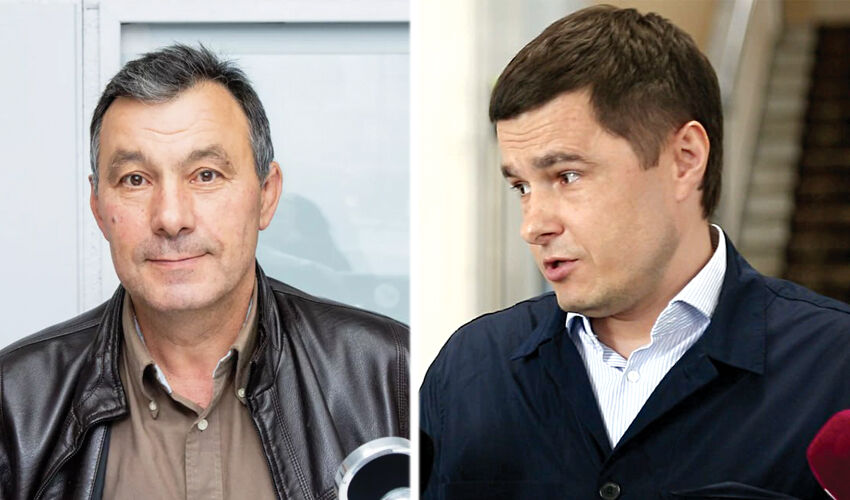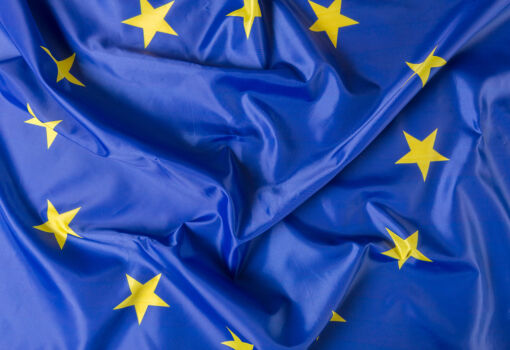
Mihai Petrake, Fadej Nagacevski
It happens in the following way. Within 10 days after receiving the general report on the parliamentary elections from the CEC, the Constitutional Court confirms the results and approves the mandates of deputies. The new parliament is convened by the president no later than 30 days after the elections. A special commission is set up to elect the Speaker of Parliament – voting is secret, while deputies are elected on the proposal of the new Speaker. Parliamentary factions are formed within 10 days. After consultations with the factions, the president appoints a candidate for the post of prime minister.
The ruling party and “much” opposition
The Action and Solidarity Party (PAS) won more than half of the votes in the September 28 parliamentary elections (50.16%), according to preliminary data from the CEC. All other parties and blocs together scored less: the electoral bloc “Patriotic Bloc of Socialists, Communists, Heart and Future of Moldova” – 24.19%, the bloc “Alternativa” – 7.97%, “Our Party” – 6.2%, the party “Democrația Acasă” (DA) – 5.62%.
This result allows PAS to form a parliamentary majority, elect its own Cabinet of Ministers, and continue to rule for another four years without regard for the opposition. What methods it used to achieve the new majority is a separate topic. The opposition emphasizes propaganda, administrative resources, control over the mainstream media, manipulation of the right to vote and purposeful fear-mongering among citizens. And that, perhaps for the first time, very many people went out or did not go to the polls for the same reason – out of fear. To come to power against this background is a reason to be proud.
Especially since the PAS majority now is not at all what they got in 2021. First, the candidates from the Dignity and Truth Platform, Dinu Plingau and Stela Macari, who entered parliament on the PAS list, de facto represent a different political force. They have already announced that they will not join the PAS faction, but will fulfill their mandate as independent MPs. But it is not yet clear how they will behave, although they have promised to support their government. Therefore, the majority will be quite fragile.
Second, Moldova seems to be entering a period of broad parliamentary pluralism. There will be a lot of opposition. It will be diverse. Different parties, including those in blocs, represent different layers of society. There may even be a natural competition between them as to who is more effective in fulfilling the function of controlling power – the main mission of the opposition. We are looking forward to seeing the new forces that have so far criticized the parliamentary opposition for “inaction” finally show their teeth to the authorities. Declarations, flash mobs, demonstrative exits from the conference hall are not to be suggested. It’s been done before.
According to the statements of the leaders of parties and blocs, we can roughly understand how the future opposition factions will behave.
Igor Dodon, one of the leaders of the Patriotic Bloc, called the election result illegitimate, which “cannot be the basis for improving the quality of life, for stability, or for the legitimacy of the authorities”.
The capital’s mayor, Ion Ceban, one of the leaders of the Alternative, said Moldova now needs calm, peace and unity. “As decided by the majority of citizens, this is how we will live for the next four years,” he stated.
“Our Party” will support any initiatives useful for citizens and the state – regardless of who proposes them. “We are going to work, not to put on a show,” said its chairman Renato Usatii.
Vasile Costiuc said his Democrația Acasă (DA) party will be “the loudest and most combative opposition” the ruling majority could have imagined. He clearly emphasized that it would be a pro-European opposition.
There is little chance for consensus
Mihai Petrake, a former MP and lawyer, has extensive experience in the parliament – he was also the head of the Legal Department of the Parliamentary Apparatus. Logos Press asked him what are the advantages of this arrangement.
“The plus side is that in the future parliament different social groups will be represented, which in turn are not associated with either PAS or the Patriotic Bloc. From this point of view, the parliament becomes more representative as it reflects different positions, approaches and ideas. Future factions have many questions for PAS, unless, of course, their statements were limited to the election campaign. I have long believed that we need to move away from one-party rule. We need to take into account the balance in society, which I believe requires parliamentary pluralism that objectively reflects the views of citizens. Future deputies should realize that regardless of personal sympathy or antipathy between the key figures of the forces that will be represented in the parliament, there are also objective obligations. Deputies should receive their certificates as soon as possible and get to work – there is no time for hesitation.
Fadej Nagacevski, former Minister of Justice and former advisor to the Speaker of Parliament, is not quite sure that the new legislature will be able to come up with a formula for a broad consensus.
“I think there will continue to be a formula of radicalization. The opposition that entered parliament has been very ‘toxic’ towards the government throughout the campaign, which will give reasons for the ruling party to act not through cooperation but through confrontation. With no chance of a broad consensus. I hope that I am wrong, I hope that there will be maturity in actions to return to civilized dialogue, because dialogue is necessary to implement the conditions prescribed by the EU.
Overall what I felt and noticed as a lawyer and political observer is that the citizens have experienced disappointment. Even I, when I went to the polling station, could not imagine who I could vote for. Yes, for some hope, but I wasn’t sure who was capable of offering it. And in the face of such disappointment and the opposition’s inability to reconsolidate, to demonstrate an effective struggle – and after all, the opposition’s task is to monitor possible deviations of power – I did not see enough ability to do so. Therefore, in the future there will be a demand from the citizens, from the Republic of Moldova for the emergence of new forces that will be able to fight in the interests of the citizens and the country and to “force” the authorities to act in the same interests. Everything is just beginning,” Nagacevski told Logos Press.
Diana Karaman, a future MP from the Patriotic Bloc, expressed hope for the consolidation of the opposition’s efforts to effectively protect citizens’ rights and control the authorities.
“The bad thing is that the policy of the authorities is unlikely to change with regard to citizens. During the pre-election campaign, we were very close to people and we know about the serious problems that exist in society. As to whether it will be easier to work with a large number of opposition parties in parliament, it is hard to say. After all, none of these parties has ever been in parliament before. I very much hope for the consolidation of the opposition’s efforts to limit the authorities’ lawlessness towards people. We have common goals – to protect the rights of citizens, freedom of speech, the interests of the country and the people. Therefore, I hope very much that we will be able to unite the entire opposition, so that our work – albeit in opposition – will be effective and will be for the benefit of citizens,” Diana Karaman said for Logos Press.
So, in the new parliament, we have a government that will independently shape the government’s policies and agenda, and a multi-vocal opposition that will control and restrain it. While they look at each other in their new roles, society is witnessing the emergence of parliamentary pluralism. If only it could be buttered on bread…..

